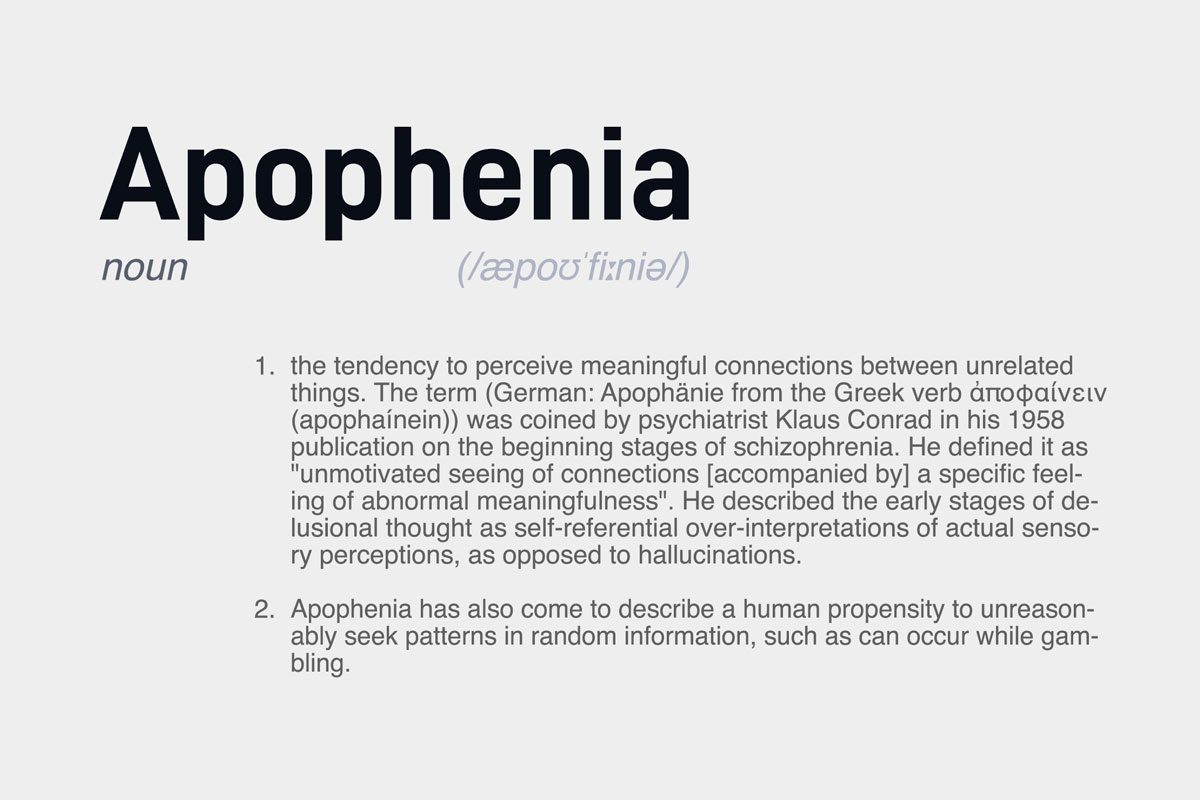Apophenia
The tendency to perceive a connection or meaningful pattern between unrelated things (such as objects or ideas). I’d suspect there was often a subconscious—or conscious—motivated reason tied to it.
Apophenia is often used in a psychological or sociological context (e.g., conspiracy theories, etc.), but we all experience some version of it in our day to day life. We’re wired to make sense of things and to form narratives in our minds.
Take post-hoc fallacy, “Since event Y followed event X, event Y must have been caused by event X.”
Author Annie Duke writes up a more intricate version of it in Thinking In Bets entitling resulting fallacy, encouraging readers not to mix up the quality of the decision with the outcome.
Our capacities for pattern matching is our greatest strength and weakness. We can use it to learn quickly, certainly, though it also leads to an incredibly limiting sense of possibilities. Early—perhaps inaccurate—lessons or coincidences reinforce themselves through confirmation bias and self-fulfilling prophecies. People learn to fake the patterns.
One of the most important secrets to thinking beyond apophenia: doubt.
Going deeper and asking why we think this way.
Why did this experience, pattern, or connection actually take place? What is a correlation, and what is a cause? What can be explained, and what can’t? Ask yourself why five times, and you’ll find something that doesn’t make sense. Trust, but verify.
